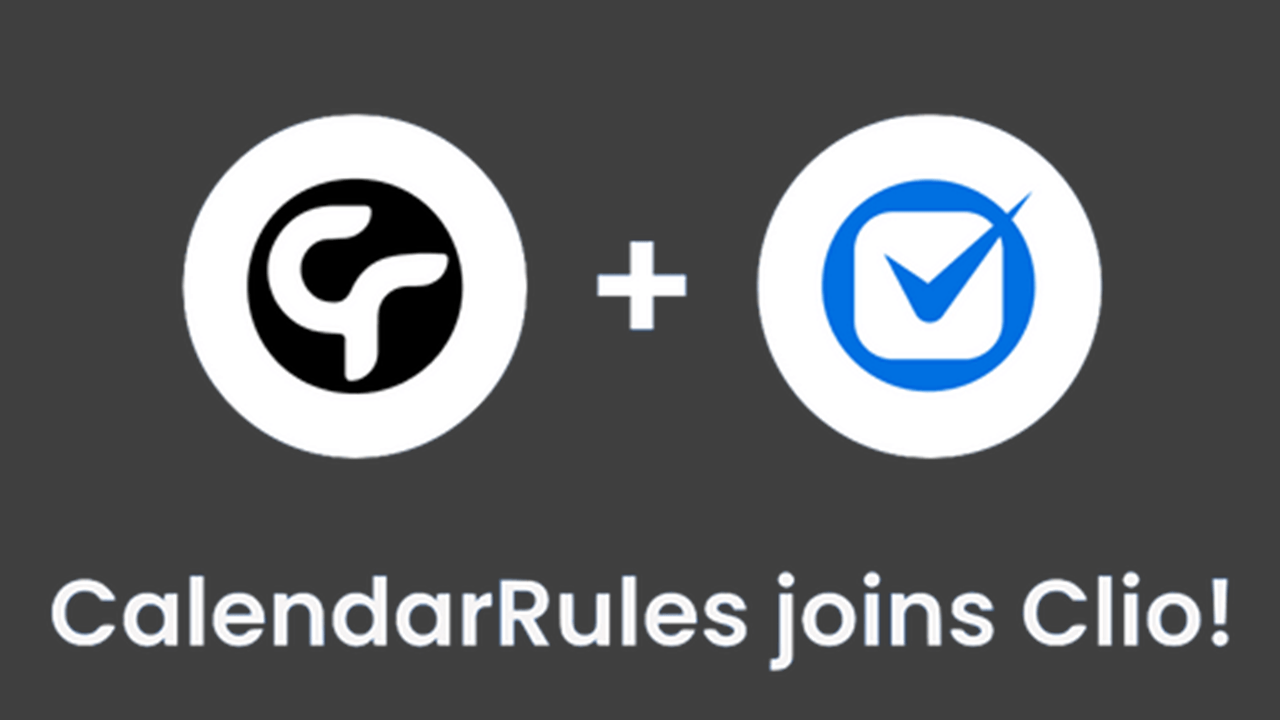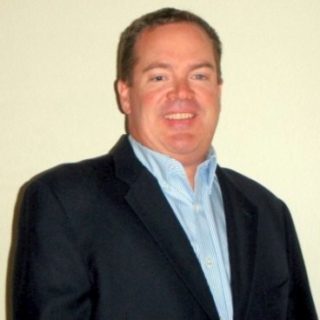Yesterday, I reported that law practice management company Clio acquired the automated court-calendaring company CalendarRules. This was Clio’s second acquisition, after its 2018 acquisition of Lexicata, which it developed into its CRM platform Clio Grow.
Yesterday, I discussed the acquisition with Jack Newton, cofounder and CEO of Clio, and Scott Davis, founder and CEO of CalendarRules, who joins Clio as general manager of CalendarRules.
Following is a transcript of our conversation, which I have edited for length, clarity and consistency.
AMBROGI: Jack, given that this is just Clio’s second acquisition, why was court rules calendaring where you wanted to focus? Why did you think that was important to bring into the Clio family?
NEWTON: One of the commonalities that both the Lexicata and CalendarRules acquisitions have are that both products were longstanding integration partners of Clio that had demonstrated real value to our customers over the course of many years prior to the acquisition. Scott and I have been business partners and friends since meeting at Legaltech, New York, I think 10 years ago, and we had an integration into Clio that kept getting deeper and deeper as the years went on. For CalendarRules, in terms of its applicability to Clio customers, I think it is just such a clear example of the kind of functionality that can eliminate the energy and time that lawyers waste on calculating dates manually.
When dates are calculated manually, they’re error prone. There are so many edge cases and special considerations that go into these date calculations that it’s really the kind of thing that you should trust to a computer. That’s exactly the technology that Scott’s built into CalendarRules. We felt like this was functionality that was so impactful – and so table stakes, frankly – that we felt every Clio customer should have access to it. We saw an opportunity to partner in the deepest way possible with Scott by acquiring the company and putting our heads together now and collaborating on a long-term roadmap that will bring this kind of court automation functionality to an even higher level in Clio. We’re really excited to have Scott as a true member of the Clio team and to bring this CalendarRules integration to the next level.
DAVIS: There’s just so much opportunity for expanding not only within the Clio base, but expanding the Clio base and getting to additional users. The big pitch that we have is that even if you are doing manual calculations, you should have somebody double checking it. We can do that double checking for people, so it’s really streamlined and saves time and reduces risk. I think Clio’s breadth of technology and experience can also help the other side of our business, which is in the partner channel.
AMBROGI: I just wrote last week about the fact that CalendarRules had integrated with MerusCase, which is a competitor of Clio. Will those kinds of third-party integrations continue, or does this put a stop to those?
NEWTON: We have no plans to change anything around how CalendarRules integrates with the really great ecosystem that Scott has. This is really just about us figuring out how we partner in the best way possible to bring more value to Clio customers over time and invest in Scott and his team to let them do bigger and better things and continue to expand their court coverage and think about ways that the types of automation that Scott has brought to court rules might be expanded to other areas of value for Clio customers.
AMBROGI: What does the acquisition look like going forward? Does CalendarRules get more deeply integrated into the Clio platform? And what does that look like?
NEWTON: The fact of the matter is it is already pretty deeply integrated into the platform, Bob, more so than most of our integrations. Scott was one of a very small handful of what we call platform-level integrations that are actually wired directly into Clio’s code base. So, in a lot of ways, CalendarRules already felt like a native part of Clio’s functionality to our customers. Scott has a long list of ideas, that we’ve talked about at length already, for ways we’ll be able to level up that integration and make it more expansive and more powerful. What Clio customers will see over time is the level of integration – not necessarily feeling more integrated – but more expansive and more powerful in what it can achieve for them.
AMBROGI: Can you give me any examples of that?
NEWTON: We’ll probably wait until we’re shipping the features and we can talk about them then, but at a high level, we just see an opportunity for – and we’ve got lots of feedback from customers on – ways that we can make the CalendarRules integration more comprehensive. And there’s also continual investment in expanding the rule set as well, and the number of courts that are covered by the court rules.
AMBROGI: Is that all U.S. based and is it something that would expand outside the US at some point?
DAVIS: It is [all U.S.], although, interestingly, about 30 days ago, we finished the Canadian federal rules. We haven’t even really talked about that yet, but there were enough customers asking for them that we decided to go ahead and do that. We pushed those out July 1st.
NEWTON: Canada Day.
DAVIS: We did that on purpose.
There’s no reason that we can’t expand more internationally as required. … Our attitude is if somebody will subscribe to a rule set, and they can point us to the authority for that rule set, we’ll build it.
AMBROGI: Scott, Jack alluded earlier to the importance of using technology, either to generate these calendars or as a check-and-balance on the fact that you’ve done it right. But isn’t part of what you do also not the technology side of it, but the editorial side of it – making sure these are all current and complete and up-to-date?
DAVIS: I think that’s actually the bulk of what we do. The technology is pretty robust and stable. … The main thing that we’re doing every day is reading, interpreting and building rule sets. And there’s a very fine line between too much in a rule set and not enough in a rule set. There’s really an art to the right number of deadlines. You don’t want to clutter the calendar, but you don’t want to miss anything either. That’s our sweet spot, that’s what we focus on, working with clients and building that substantive information.
NEWTON: That content is something that Scott has invested an enormous amount of energy and process around making sure that is all up-to-date and continually maintained. The technology piece – even though it’s exposed through a really clean, easy-to-use API for integration partners like Clio – is pretty deep technology, when you think about all the ways that these events are linked to each other and trigger, follow-on events, and the impact of one event changing, one day changing, one new holiday being introduced, as we’ve seen both in Canada and in the U.S.
For example, we’ve had Juneteenth announced as a holiday in the U.S. We’ve had the National Day for Truth and Reconciliation announced in Canada in September. Accommodating the ways that these can have cascading impacts on all these court dates is extremely sophisticated technology – to actually propagate all of those changes and make sure it’s completely airtight and completely error free. Conversely, the way it would have been done by a human is so, not just fraught with error, but so easy to miss these events that would trigger a change in your court dates.
When we think about Clio’s broader mission to transform the legal experience for all, and to make sure that lawyers and law offices, that every staff member of a law office, is deploying their time – the highest and best use of their time – in support of delivering good outcomes to their clients, this is just such a powerful technology in service of that mission. … We of course see the courts and the way that lawyers interact with courts as a profound part of us achieving that long-term mission as well, so technologies like CalendarRules, as a very specific example of that kind of technological transformation, is something we’ll certainly see more of from Clio over the next few years.
AMBROGI: Scott, how many people work for you and what happens with them?
DAVIS: We have a team – I call them the rules team – it’s a mixture of paralegals, law clerks and attorneys. Probably depending on the day, the week and the month, between seven and 15 of those. It ebbs and flows with the courts. Like California does updates in December and July or January and July. So we ramp things up certain times of year. Or, if we need to build, I’ve got someone who does our intellectual property rules. Maybe they don’t change this year and we don’t do anything, we don’t use her services very much at all. Then the next year they’ll renumber the whole rule set, or they’ll add a new section or they’ll do something, and then she’s working full-time for us for three months. It’s very much a spigot of attorneys and expertise that we ramp up and down. They’re all part of the transition and I expect, actually, we’ll be adding to that team over time.
AMBROGI: Will there be any further developments regarding this between now and your [Clio Cloud] conference in October that you might announce there?
NEWTON: I think that’s definitely in the realm of possibility. Without being deliberately coy, we’re still just in the process of integrating Scott and his team into team Clio. Scott’s working with our operating and our product teams to lay out an 18-month roadmap for what the integration plan and that expansion plan for the product functionality might be. If we have any news to share, or if we line up any of those announcements around ClioCon, you’ll definitely be the first to know.
We’re really excited to have Scott on the inside, so to speak, to interface more directly with our product teams and help bring some of his vision for what court rules can do, from a value perspective, to life.
 Robert Ambrogi Blog
Robert Ambrogi Blog

